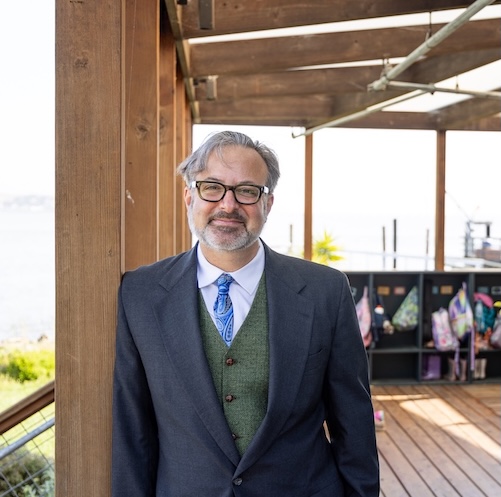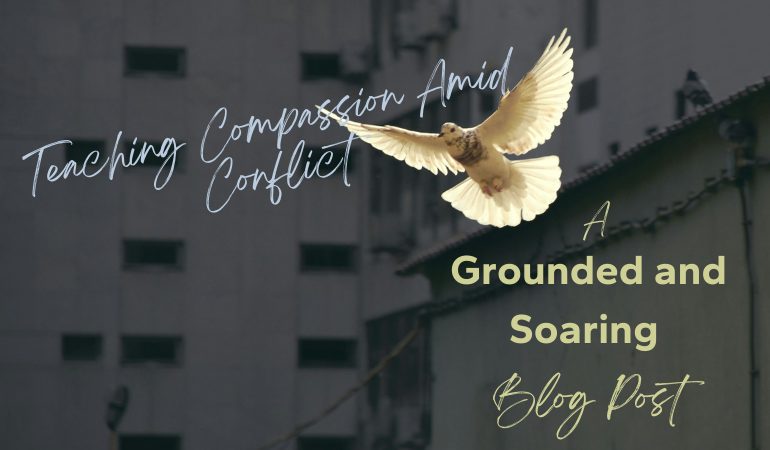As I write this note, our nation is preparing for the inauguration of a president for a second term—a moment that comes during a time of heightened tension and division across the country.
Many describe these as unprecedented times, and in some ways, they are. The digital age amplifies every disagreement, making polarization feel sharper and more personal. Yet, history reminds us that division is not new. Our nation has weathered deep fractures before—from the Civil Rights Movement to moments of profound political conflict—and while the challenges today are unique, the lessons from those times continue to resonate.
As parents, we have an extraordinary opportunity to shape how the next generation approaches these complexities. How do we raise children who navigate conflict with empathy, courage, and integrity? How can we model compassion, thoughtful engagement, and the resilience to hold strong to our values without losing sight of the humanity in others?
These are difficult but vital questions—ones we are uniquely equipped to address through our actions, words, and choices every day.
1. Rethink “The Other Side”
In times of division, it becomes all too easy to reduce those we disagree with to a single label or stereotype. As the writer Parker Palmer reflects, “When the difference between me and thee becomes too great… I will find some way to kill you off. I won’t do it with a gun or a gas chamber, but I’ll do it with a category… a word of some sort that renders you irrelevant to my universe.”
Our children are listening closely to how we speak about “the other side.” Do they hear us dismiss or demean others? Do we model the ability to disagree without dehumanizing? Compassion is not the same as agreement, but it requires seeing the shared humanity in those whose views we oppose.
As parents, can we show our children that it’s possible to work passionately for our ideals while still engaging with others respectfully? This doesn’t mean silencing our beliefs; it means broadening the conversation to include the human story behind the disagreements.
Ask yourself: What names do my children hear me use for those with whom I disagree? And how can I teach them to listen, empathize, and engage without losing sight of their values?
2. Inspire Undivided Lives
In times of moral conflict, history provides us with countless examples of individuals who refused to compromise their integrity. When Rosa Parks was told she would be arrested for not giving up her bus seat, she responded simply, “You may do that.” Her quiet courage reminds us of the power of living an undivided life—one where our outward actions reflect our deepest values.
Maria Montessori, too, modeled this principle. In 1933, at great personal cost, she refused to have children in her schools pledge loyalty to Mussolini’s fascist regime. Her decision led to exile, but it preserved the integrity of her educational philosophy, which was rooted in peace and justice.
In today’s polarized world, let’s inspire our children with stories of those who lived their values fully. Let’s show them that true strength lies in standing firm for what is right, even when it’s unpopular or inconvenient. As Parker Palmer reminds us, “No punishment anyone might lay on us could possibly be worse than… failing to act and speak in ways consonant with the truth we know.”
Moving Forward
As parents and educators, we have a unique opportunity—and responsibility—to model the values of compassion, integrity, and courage for our children. This doesn’t mean ignoring the realities of division and conflict. It means showing our kids how to engage with these realities constructively, with empathy and respect.
Montessori principles remind us that peace is not passive. It is built through active listening, thoughtful dialogue, and unwavering integrity. In this time of national division, let us strive to create homes and classrooms where our children learn to build bridges, not walls, and to see differences as opportunities for connection, not alienation.
May the values that guide Marin Montessori’s mission burn brighter than ever in our shared work to raise a generation inclined toward peace.

As Head of School, Sam is responsible for ensuring that Marin Montessori flourishes and that the School’s mission is brought to life each and every day.





